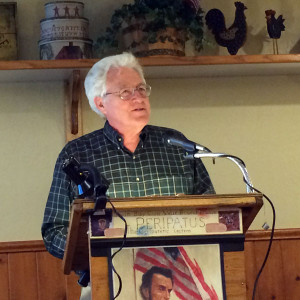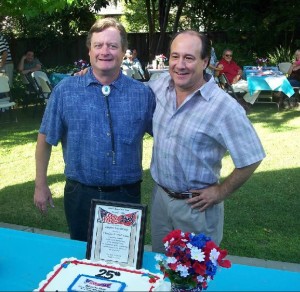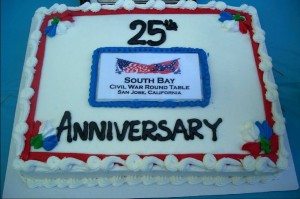This month’s quiz by Tom Roza is not based on a previous meeting presentation, but on a general topic of interest to the membership.
The Emancipation Proclamation
Q#1 – Where did President Lincoln write his draft of the Emancipation Proclamation?
Q#2 – Was the Emancipation Proclamation legislation that was passed by Congress and signed into law by the President or an Executive Order issued by the President?
Q#3 – Which States were affected by the Emancipation Proclamation?
Q#4 – Of the 4 million slaves in the United States at the time the Emancipation Proclamation went into effect, how may slaves were affected by it?
Q#5 – On what date did the Emancipation Proclamation take effect?
Q#6 – Prior to the Emancipation Proclamation, what was the name of the Federal law that directed that escaped slaves were either returned to their masters or held in camps as contraband for later return?
Q#7 – Prior to the Emancipation Proclamation, what was President Lincoln’s mission regarding the Civil war?
Q#8 – Was the Emancipation Proclamation ever challenged in court?
Q#9 – From a constitutional perspective, prior to the Emancipation Proclamation, how were slaves viewed?
Q#10 – Why were New Orleans, Tennessee and the 48 counties that eventually became West Virginia exempted from the Emancipation Proclamation?
Q#11 – Did the Emancipation Proclamation make slavery illegal?
Q#12 – What advice did Secretary of War Edwin Stanton give to President Lincoln regarding when to issue Emancipation Proclamation?
Q#13 – What did President Lincoln tell his Cabinet members on what influenced his decision as to when to issue the Emancipation Proclamation?
Q#14 – What was the reaction of foreign countries to the Emancipation Proclamation?
Q#15 – To ensure the abolition of slavery in all of the United States, what legislative action did President Lincoln push passage for?




